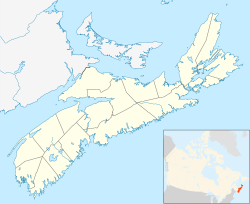Environmental injustice
Since the 1970s, the African Nova Scotian community of Lincolnville has raised concerns about environmental racism related to the siting of landfills near the community. In 1974, a first-generation landfill was established approximately one kilometre from Lincolnville. Residents reported that the site lacked proper lining to prevent leachate and accepted hazardous materials, including dead animals, leaking transformers, and industrial waste from beach clean-up operations. Studies conducted by the ENRICH Project found that the proximity of this landfill to a historically Black community reflected broader patterns of racialized environmental decision-making in Nova Scotia.
The landfill was officially closed in 2006 and replaced by a second-generation facility built on the same site to serve 17 municipalities, including Cape Breton. Despite updated engineering standards, residents have continued to express concern over contamination from the original site, reporting that well water and nearby surface waters show elevated levels of cadmium, phenol, and toluene. The community has also criticized the lack of transparency and consultation in the planning and approval processes for both landfill sites, arguing that they were not adequately informed or included in municipal decision-making. [1]
This page is based on this
Wikipedia article Text is available under the
CC BY-SA 4.0 license; additional terms may apply.
Images, videos and audio are available under their respective licenses.
